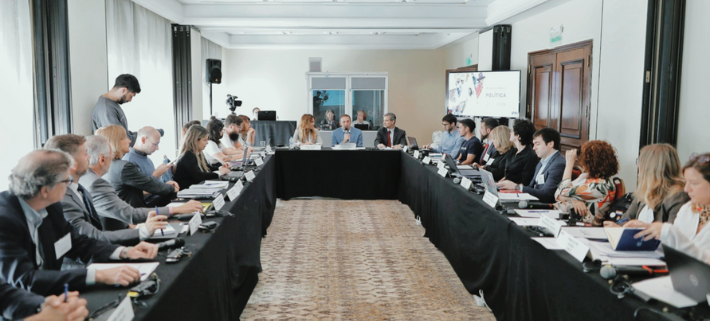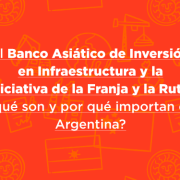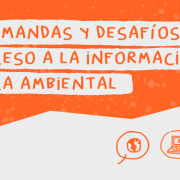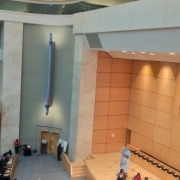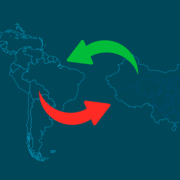Comments to strengthen the IDB’s Access to Information Policy
After participating in a series of face-to-face and virtual public consultations, a group of Civil Society Organizations (CSOs) from the region sent comments and suggestions to the IDB in the framework of the revision of the Bank’s Access to Information Policy.
“Below, we offer a google translate version of the original article in Spanish. This translation may not be accurate but serves as a general presentation of the article. For more accurate information, please switch to the Spanish version of the website. In addition, feel free to directly contact in English the person mentioned at the bottom of this article with regards to this topic”.
On December 28, 2022, the deadline established by the Inter-American Development Bank (IDB) for sending comments on the draft of the institution’s new Access to Information Policy (PAI) ended. Thus concluded the Second Phase of the Public Consultation Process approved by the Bank and which lasted 90 days.
Within this framework, together with a group of Civil Society Organizations in the region, we sent a document with comments and recommendations in relation to the Draft Policy prepared by the Bank, which, although it incorporates some positive advances, is not enough to guarantee the right of access to information effectively in relation to the actions of the Bank and its customers.
Among the main recommendations and suggestions highlighted in the document, the following stand out:
- Commitment to access to information as a fundamental human right. The Bank must establish clear commitments to guarantee respect for access to information as a fundamental human right. The right to information is also a key access right for the exercise of other fundamental rights, such as the consultation, participation and involvement of people and communities impacted by projects in decisions that affect or may have an impact on their ways of life. .
- Implementation Guidelines. It is concerning that some criteria and parameters that will make the PAI effective are left to be addressed in the Implementation Guidelines. In this way, the effectiveness and force of the PAI will depend a lot on the Implementation Guidelines that do not require mandatory compliance as the PAI itself does. In turn, these Guidelines should be consulted through a meaningful participatory process with civil society.
- Language ambiguity. The PAI contains a lot of ambiguous language and vague and diffuse commitments, which opens the door to different interpretations, including breaches and serious misconduct. Likewise, it prevents the establishment of clear requirements for the borrowers and also the responsibilities of the Bank itself. The Policy must avoid flexibility and ambiguity of language to prevent the use of discretion and non-compliance with respect to its guidelines.
- Specification of what information is going to be published proactively, disclosure times, in what formats, channels and deadlines. The PAI must clearly establish what information it is going to proactively publish, through what channels or media, in what formats and in what terms. In turn, response times to requests for information are excessive, and the IDB reserves the right to extend these terms indefinitely. The Bank must define shorter and clearer terms in terms of its responses to requests for information, and must be aligned at least with the currently applicable international standards.
- Country or customer proprietary information. Although the elimination of the “Exception specific information of countries” is celebrated, there is concern that other points of the policy may end up undermining the principle of maximum disclosure and the openness that is intended with such elimination.
- Exceptions. The exceptions must be more precise and clear criteria must be established for their application, as well as the identification of the specific documents or information to which access will not be given under the exception.
- Damage assessment. The inclusion of the assessment of the damage for the application of the exceptions is celebrated. However, clear criteria and scales must be specified to delimit its application. If an effort is not made to define these criteria and procedures in the body of the Policy (and leave them for the Implementation Guidelines), there is a risk that during their application discretionary use of exceptions will end up prevailing on the part of the Policy. of the Bank and borrowers. It is recommended to incorporate the criterion of public interest in the damage assessment, as a counterbalance to the damage, and to make the results of the damage assessment public in each specific case.
- Open data, simple language, accessible formats and usability of the information. The information that is disclosed and published must be useful for those who request it, especially for the communities affected by IDB projects, paying attention to marginalized groups, such as indigenous peoples, Afro-descendants, people with disabilities, women, the LGBTIQ+ population, among others. others. The accessible format, the simple language and the generation of open data are related to the usability of the information. It is recommended that the IDB address the issue of accessible formats, simple language, and open data in more detail and in a transversal manner throughout the PAI, taking into account the importance of this aspect, especially for marginalized groups.
It should be noted that a large part of the recommendations and suggestions contained in the document were previously raised in the framework of the public consultations carried out by the IDB, both online and in person in Montevideo, Bogotá and Washington DC. Precisely, from Fundeps we participated in the face-to-face public consultation in Montevideo, Uruguay on November 15, 2022.
We hope that the inputs provided by civil society are considered by the Bank and contribute to strengthening the draft Access to Information Policy proposed by the institution, which is far from incorporating the highest standards in the matter.
To access the complete document with comments and suggestions sent to the IDB, access here
More Information
- Recommendations and comments from Civil Society on the Draft Policy on Access to Information of the Inter-American Development Bank. December 2022
- IDB began public consultation for the new Information Access Policy – Fundeps
- Proposal for a new Access to Information Policy – IDB
- Consultation Plan- IDB
- Update of the Information Access Policy – IDB
Contact
Gonzalo Roza, gon.roza@fundeps.org

